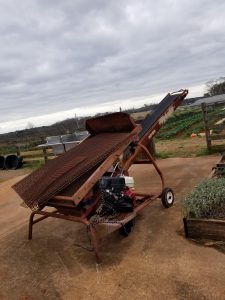What: The creativity of this compost is without being said and uses a nice blend of colors to grab your attention on to certain details and aspects like the pie graph, also I like the drawings of the brown and green items. This infographic has relevance to the audience because it stays to the point and doesn’t stray off on stuff that doesn’t matter. The infographic is intellectually stimulating because. it gives a lot of relevant and easy information to get the point across.
Gut: Honestly the emotional response I got from this was happy with the cartoon cows. The information that 250 million tons of trash was produced in 2010.
So What: Something I had not thought of before was exactly how much trash humans produced, and it has probably become more since 2010. I think the perspective the author was trying to bestow with this was that we produce a lot of trash and a lot of it can be composted and reused and is relaying what can and cant be put to a better purpose than a landfill.
Now What: I think that the stuff in this infographic is important and should be included in an infographic created by the class. The information on how much trash we produce should be included to really put things into perspective.


